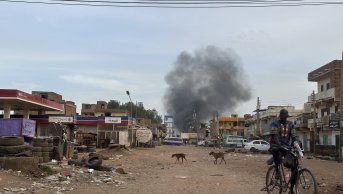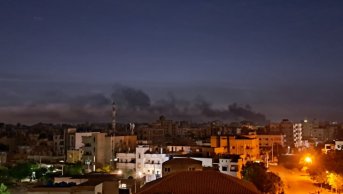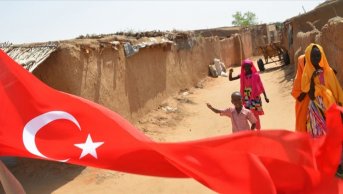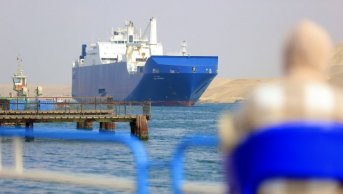The Ankara Process: Türkiye’s Facilitative Role in Alleviating the Somalia-Ethiopia Tension
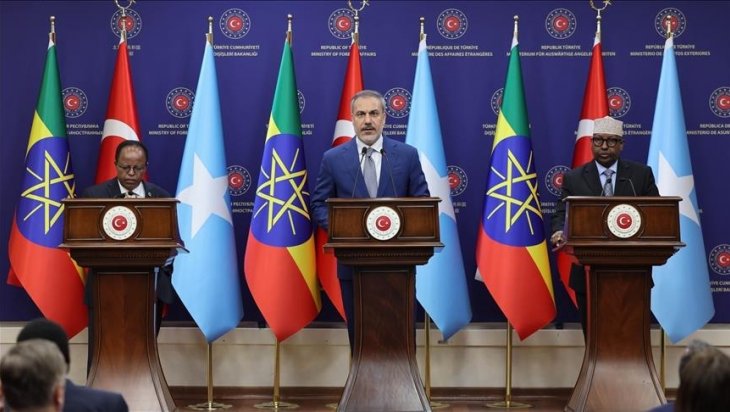
Türkiye’s facilitative role in resolving the disputes between Somalia and Ethiopia has significantly contributed to easing tensions between the two countries through diplomatic means. Indeed, Türkiye has become a key actor in the Horn of Africa by pursuing an active and multi-dimensional strategy in its foreign policy in recent years. Türkiye's facilitative initiative aimed at addressing the strained relations between Somalia and Ethiopia stands out as a concrete example of this strategy. This diplomatic initiative, which could be termed the "Ankara Process," highlights Türkiye’s positive agenda in the region and simultaneously aims at resolving disputes between the two countries through peaceful means, thereby contributing to regional stability.
The second round of talks between Somali and Ethiopian representatives, held in Ankara on August 12-13, 2024, can be seen as a tangible reflection of Türkiye’s efforts to build trust between the parties. In this process, Türkiye has provided the necessary diplomatic environment for the continuation of negotiations and the peaceful resolution of disputes as a neutral and constructive mediator. The third round of talks, scheduled to continue on September 17, indicates that Türkiye is determined to maintain its facilitative role and will continue its efforts to strengthen the dialogue between Somalia and Ethiopia. In this context, Türkiye is emerging as a crucial diplomatic actor by encouraging direct negotiations between the parties and supporting regional stability.
The Ankara Process and Initial Stages
The Ankara Process began when Ethiopian Prime Minister Abiy Ahmed requested facilitation from Türkiye. This request aimed to alleviate the diplomatic tensions that arose after Ethiopia and Somaliland signed a Memorandum of Understanding (MoU) in January 2024, granting Ethiopia access to the Red Sea via Somaliland's Berbera Port. Somalia viewed this agreement, which hinted at Ethiopia's recognition of Somaliland’s independence, as a violation of its sovereignty, leading to increased tensions in the region.
Türkiye, with its long-standing and strong diplomatic ties with both Somalia and Ethiopia and the trust it has gained from both sides, emerged as a natural facilitator for the process. During the first round of talks initiated in Ankara in July 2024, shuttle diplomacy led by Turkish Foreign Minister Hakan Fidan aimed at addressing the differences between the parties in a friendly environment and exploring potential solutions. Türkiye's role in this process has focused on promoting regional peace and stability as a neutral and constructive facilitator.
In the second round of talks held in August, Türkiye's neutral and determined stance laid the groundwork for the parties to reach a consensus and committed to continuing the search for a peaceful resolution. Türkiye’s success in this process is rooted in its deep relationships with both Somalia and Ethiopia, which have played a critical role in building trust between the parties. This background positions Türkiye as a key actor in resolving regional crises.
Expectations from the Third Round of Talks
The third round of talks under the Ankara Process, scheduled for September 17, offers a critical opportunity to permanently resolve the tensions between Somalia and Ethiopia. Particularly, the fact that direct face-to-face meetings between the parties have not yet taken place, but both sides remain committed to the continuation of the process, makes Türkiye’s facilitative role even more significant. Therefore, Türkiye is working to strike a balance between Somalia’s sovereignty concerns and Ethiopia’s demand for maritime access through shuttle diplomacy between the parties.
The Somali side, emphasising the search for a solution in line with international law and the 1982 United Nations Convention on the Law of the Sea, views Ethiopia’s agreement with Somaliland as a violation of its sovereignty and demands the agreement’s withdrawal. In this context, it is clear that Somalia insists on respect for its sovereignty as a prerequisite for any solution. Ethiopia, on the other hand, highlights that its MoU with Somaliland is of vital importance for meeting the needs of its 120 million population, as it seeks to overcome the economic and strategic disadvantages stemming from its historical lack of access to the sea.
Türkiye’s success in this process depends on its ability to find a middle ground that addresses both Somalia’s sovereignty and Ethiopia’s economic needs related to maritime access. In this regard, Türkiye is contributing by proposing alternative solutions that consider the expectations of both parties. Although no face-to-face meetings have yet taken place between the parties in the first two rounds, the determination to continue with the third round of talks is critically important for Türkiye's diplomatic prestige, as it signifies concrete progress. In this context, it can be said that the primary expectation of Somalia and Ethiopia is for Türkiye to continue its constructive and neutral stance, offering a solution that fosters consensus between the parties. On the other hand, the successful conclusion of this process will not only ensure regional stability in the Horn of Africa but will also serve as a reference point for addressing similar issues in other parts of the world.
In conclusion, Türkiye’s facilitation initiative between Somalia and Ethiopia demonstrates Ankara's strengthened position in regional and global diplomacy. This initiative not only reduces tensions between the two countries but also reveals Türkiye’s long-term, sustainable, development-based strategy in the Horn of Africa. Türkiye’s stance in the third round of the Ankara Process, or in subsequent stages, will consolidate its role in contributing to regional peace and being recognised as a reliable mediator on the international stage. However, it should be noted that the Ankara Process faces significant challenges. These challenges include Ethiopia’s MoU with Somaliland and Somalia’s growing rapprochement with Egypt, which also has disputes with Addis Ababa over the Grand Ethiopian Renaissance Dam. Nevertheless, these developments, while presenting challenges, also offer opportunities for Türkiye as a facilitating actor. In this sense, Türkiye has the potential to use these developments as leverage to expedite the process by bringing the parties together on common ground.
This opinion piece was published in Turkish on August 15, 2024, on the Anadolu Agency website under the title “Ankara Süreci Afrika Boynuzu'na barışı getirecek mi?”

